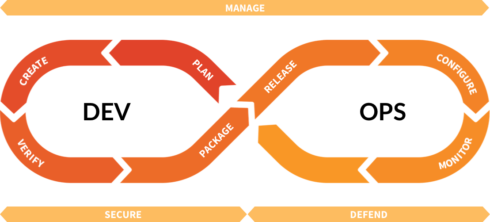
GitLab announced that 18 of its features are moving to open source including related issues, export issues, issue board focus mode, and service desk.
“This marks a major milestone in our efforts to empower the community to collaborate more robustly and to take our single tool for the DevOps lifecycle to the next level,” Sid Sijbrandij, co-founder and CEO of GitLab wrote in a blog post.
The newly open-sourced feature set covers areas that span planning, creating, verifying, packaging, releasing, configuring, and defending.
The work to move the actual code to the open-source part of the codebase is defined in issues that are linked from this blog post by GitLab.
To help developers build better code and branches, Gitlab is introducing two new features for developing in web-first environments. The features are: the Web Terminal for Web IDE that makes it faster and easier to contribute changes to projects; and file syncing to web terminal in the Web IDE that helps users test code changes in a preconfigured terminal environment.
Additionally, design management features allows users to upload design assets to GitLab issues and keep them stored in one single place, accessed by the Design management’s page within an issue, ensuring issues are the single source of truth for everything required to develop a feature.
“From design management to package managers, managing multiple Kubernetes clusters to connecting related issues, we’re making it easier than ever for an individual contributor to have everything they need to plan, build, deploy, and secure their application with GitLab,” Sijbrandij wrote.
The full 18 features are:
- Connect related issues together
- Export issues from GitLab as a CSV and receive the CSV as an attachment to your default notification email.
- Issue board focus mode
- Service desk
- Web Terminal for Web IDE
- File syncing to the web terminal
- Design Management
- Code quality
- Conan (C/C++) repository
- Maven (Java) repository
- NPM (node) registry
- NuGet (.NET) repository
- Canary deployments
- Incremental rollout
- Feature flags
- Deploy boards
- Support for multiple Kubernetes clusters
- Network policies for container network security






